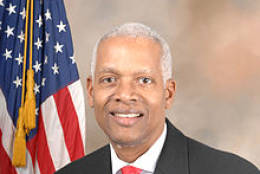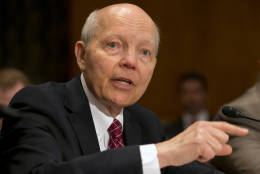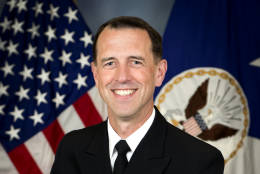Tom Temin
-
Even when the U.S. coastline dodged what could have been a much worse disaster, 22 people died when Hurricane Matthew brushed by. A decade after Katrina and a century after Galveston, Texas, the United States is still bad at disaster recovery, especially when it comes to housing. That's according to Zack Rosenburg, the founder of non-profit SBP, who started his quest for better disaster planning after helping out in Saint Bernard parish in 2006. He joins the Federal Drive with Tom Temin with more.
October 21, 2016 -
The federal government spends about as much on public relations and advertising as it does on cell phone services - $1 billion a year. Plus, the number of public affairs employees shot up during the Obama administration. But the Government Accountability Office, which put together the figures, made no recommendations on this category of spend. Federal News Radio's Eric White discussed these findings with Heather Krause, acting director of strategic issues at the GAO.
October 21, 2016 -
In today's Top Federal Headlines, the Defense Department makes clarifications about it's new rule concerning cyber incident reporting and safeguarding Controlled Unclassified Information.
October 21, 2016 -
You can find a whole chapter on risk management in a genuinely readable new book.
October 21, 2016 -
Congress gives and it also takes away. On Sept. 30, it let expire a protest avenue for task orders larger than $10 million. Before then, contractors could have taken these protests to the GAO, like regular contract awards. So what happens next? For some insight, the Federal Drive with Tom Temin turns to Joseph Petrillo, procurement attorney with Petrillo and Powell.
October 20, 2016 -
Self-driving cars might be the way of the future. But the way the Transportation Department is regulating autonomous traffic means it could it could be a long way off. One proponent of driverless cars is Paul Brubaker, president and CEO of the Alliance for Transportation Innovation. He finds lots wrong with current policy and joins the Federal Drive with Tom Temin with more.
October 20, 2016 -
In today's Top Federal Headlines, the head of U.S. Army Forces Command lays out the obstacles that are hindering Army troops from their full capabilities.
October 20, 2016 -
For the better part of 15 years, the Army has canceled and otherwise dis-invested in new technologies and capabilities. That means its soldiers work with old equipment and capabilities increasingly matched by potential adversaries.
October 19, 2016 -
These episodes occur regularly, but it's always hard to watch.
October 19, 2016 -
If it wasn't for clunky federal hiring practices and slow security clearances, the government would be a highly competitive employer for cybersecurity-skilled people. That's a major finding from a survey done by the Center for Strategic and International Studies. Katrina Timlin, an associate fellow at CSIS joins the Federal Drive with Tom Temin with more on the findings.
October 19, 2016 -
It comes up about this time every four years - questions over whether the Office of Mangement and Budget is organized in the best way to help the government deliver. You hear periodic calls for going back to having a budget bureau, or boosting the 'M' in OMB. For some ideas of what the next president can do, Mallory Barg Bulman, research director at the Partnership for Public Service joins the Federal Drive with Tom Temin.
October 19, 2016 -
The security of America's elections is under heavy scrutiny this year. Fear of foreign hackers and insider threats have caused some people to think more should be done to secure the election system. One of those is Rep. Hank Johnson (D-Ga.). He recently spoke with Federal News Radio's Eric White to discuss two pieces of legislation he's sponsored to enhance protections.
October 19, 2016 -
In today's Top Federal Headlines, a federal judge gives the tax agency a deadline for finishing up conservative groups' applications for tax-exempt status.
October 19, 2016 -
The Chief of Naval Operations is in charge of manning, training and equipping the Navy – and Adm. John Richardson, the current CNO, says that means civilians too. In a bit of an unusual step for a military service chief, he’s issued his own framework for improving the health of the civilian workforce. The new document calls for each of the Navy’s commands to develop a strategy to make sure their civilian workforce is as healthy and well-developed as the military side – from hiring and training to performance management and professional development. Adm. Richardson spoke with Federal News Radio's Jared Serbu by phone to talk a bit about the new framework, and what comes next.
October 18, 2016 -
Good program management has always been central to a well-functioning government. Add up the millions of projects and you've got thousands of programs. Now good program management might become law, if a bill now in the House makes it through. Joining the Federal Drive with Tom Temin with the implications of the Program Management Improvement and Accountability Act, Mark Langley, CEO of the Project Management Institute.
October 18, 2016














